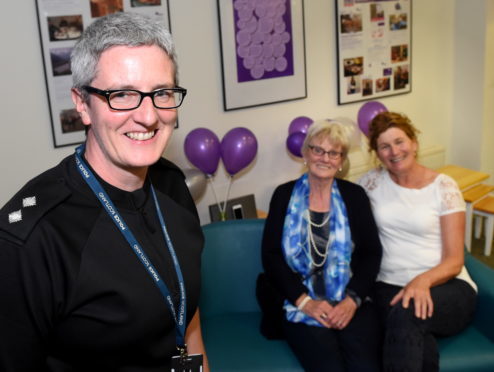A scheme which will ensure police can find missing dementia sufferers as swiftly as possible has been rolled out in the north-east.
The initiative has been launched in partnership with NHS Grampian, Alzheimer’s Scotland and VSA.
Dementia patients only made up about 4% of people reported missing in 2017-18, however given the complexities of the condition it makes for a far more challenging investigation by police.
The Herbert Protocol has already been trialled in the Highlands and Dumfries and Galloway, and consists of a form which contains key bits of information about a person’s background.
This includes details like where they grew up, favourite places, hobbies and a picture of the person, and is prepared by the family and individual after they are diagnosed.
First devised in 2011 in Norfolk, the scheme was named after Normandy veteran George Herbert who died after he went missing looking for his childhood home.
Fredda McIntosh, from Stonehaven, was first diagnosed with dementia two-years-ago and is cared for by her daughter Lesley Hampton.
The pair were at Alzheimer Scotland’s Dementia Resource Centre on the city’s King Street yesterday for official launch.
Mrs Hampton said: “It’s hopefully a scheme we’ll never have to use, it’s about what happens in the worst-case scenario in which your loved one goes missing, but I think it’s a great initiative.
“It’s very personal information that will help police know where to look for in the first place.
“I think as a family member you will be feeling very fearful and you’re not going to think very clearly. I can’t see how you would think of those things in the heat of the moment.”
Once the form is completed it will be uploaded to the police’s website and accessed by anyone.
It is hoped this will ease the upset for families who would previously have had to provide these details after someone goes missing, and also save police valuable time at the beginning of the investigation.
Inspector Carron McKellar is responsible for missing persons investigations on behalf of the partnership co-ordination unit.
She said: “Having been in that situation so many times you can see the distress it causes family members, they’re trying to answer all of your questions and they want you to find your loved one but they’re also worrying about where their loved one is. It can take a number of hours to get as much information as would be able to access in the form.
“It means we can target our resources straight away.”
